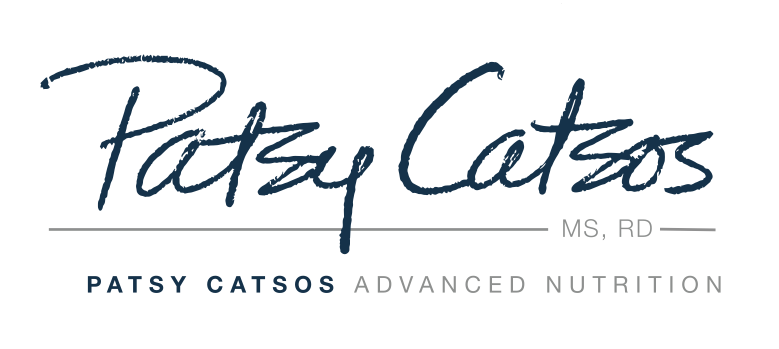“Strong science shows that up to 75% of IBS patients get relief of their IBS symptoms on a low-FODMAP diet.”
A patient brought this bag to our first visit. IBS patients are often advised to keep food and symptom diaries, but without a strategy and a plan, this activity often yields little more than a bag full of notebooks.
Have you been diagnosed with irritable bowel syndrome? The first questions you might ask are, “What can I do to help myself?” and “What can I eat for IBS?”.
In the past, nutrition advice for IBS usually didn’t work. Most patients were told that food choices had nothing to do with their IBS symptoms, or that their symptoms were all in their heads. If they did get diet advice, they were told that everyone with IBS should avoid red meat, high fat foods, caffeine and alcohol. It was considered gospel that patients with IBS should eat more fiber. A high fiber diet is certainly worth a try, considering fiber’s many well-known health benefits. However, if a high fiber diet does not help, or makes your symptoms worse, instead of better, it's time to move on to something that actually works..
No more one-size-fits-all diet advice for IBS!
Today's best IBS treatments revolve around an individualized diet for each person with IBS, the gut microbiome and the gut-brain axis. Knowing what we know today, it seems obvious why IBS treatments of the past failed so often!
What is a FODMAP-elimination diet?
Non-Diet Therapies for IBS
Of course, appropriate food choices are not the only treatment for IBS, though they are the focus of both this web site and my books. IBS is a multi-factorial condition, so most people need to address factors in addition to diet. Though other treatments are outside the scope of this website, they are acknowledged here.
Some people do find their IBS symptoms improve with adequate attention to a healthy lifestyle, including stress management, regular mealtimes, adequate fluids, exercise and rest. It makes sense to try these general measures first, but don’t stop here.
Some people find that daily use of fermented foods like (lactose-free) yogurt or kefir, or probiotic supplements help a great deal. Or the opposite. For people taking probiotics already and still not feeling well, consider stopping them to see if it helps.
Gut-directed hypnotherapy is a promising modality for stress management, for retraining the gut-brain axis to work more effectively together, and to experience sensations arising in the gut in a different way.
Physical therapy for effective coordination of pelvic floor muscles can help some people with IBS, especially those with constipation or diarrhea with incontinence. One can also experiment with toileting posture, such as using blocks or a small stool under the feet to elevate knees to hip level or a little higher.
Drug therapies are available for IBS, including antibiotics, antidepressants, antispasmodics, laxatives, stool softeners, anti-diarrheals, pro-kinetics and pain medications. People with IBS often need fewer medications when their IBS is well managed with diet.
Supplements can help, particularly a fiber supplement that is well matched to your symptoms, and enteric-coated peppermint oil, which is an effective anti-spasmodic.
Who’s on your treatment team?
Your treatment team for IBS should include your doctor and a dietitian. Ask your primary care doctor or your gastroenterologist for a referral to a registered dietitian with expertise in GI conditions. It isn’t realistic to expect a dietitian primarily treated diabetes or weight management to know much about this topic. You need an expert to help you build strategies and plans that will get results. If you can’t see someone locally, consider working with me.
Some people also benefit a great deal from working with a psychologist on the behavioral aspects of IBS, or with a pelvic floor physical therapist on the mechanics of elimination.
“[I] saw and felt immediate results after one week.” ”
“There are not too many dietitians in our area, and the doctors don’t help a lot on IBS. This book was a God-send. A wealth of knowledge on the subject, it helped me understand my wife’s illness. Thank you Patsy. ”


